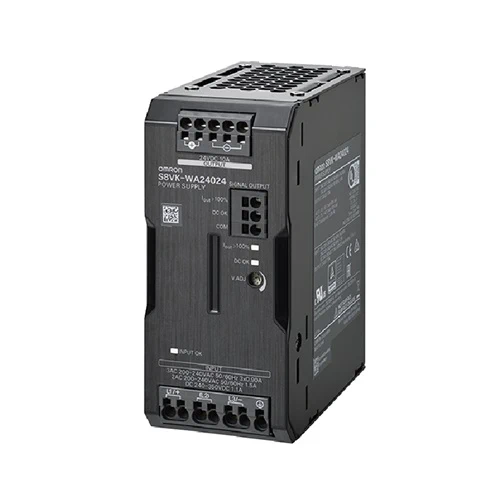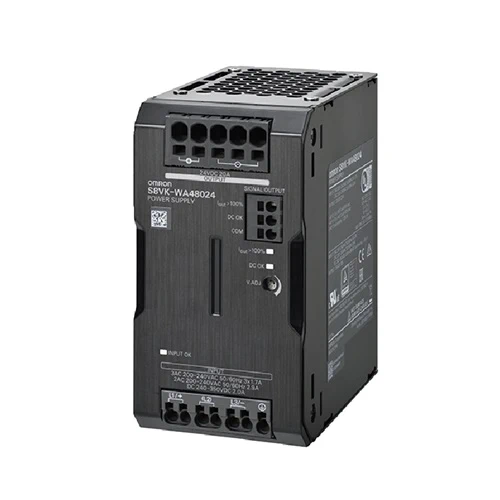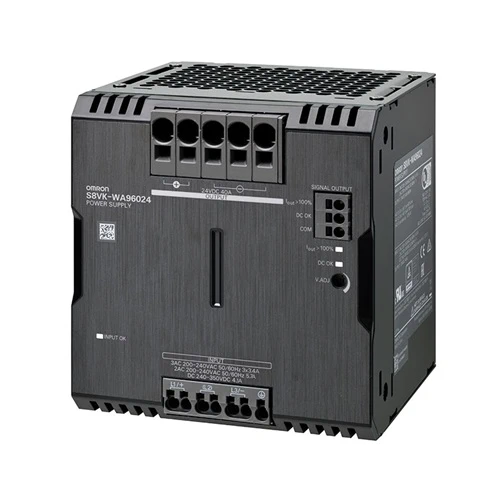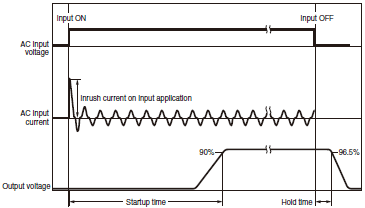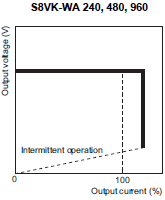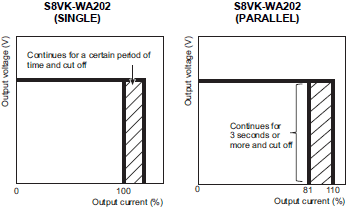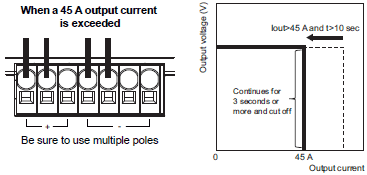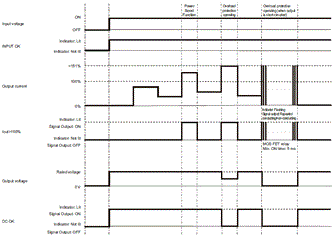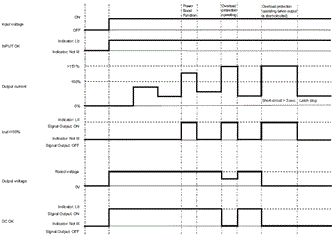*2. Do not use an inverter output for the product. Inverters with an output frequency of 50/60 Hz are available, but the rise
in the internal temperature of the product may result in ignition or burning. If the input is connected to a UPS, do not
connect a UPS with a square-wave output. Doing so will cause the internal temperature of the product to increase,
possibly causing smoking or burning.
*3. The value is determined according to the Electrical Appliances and Material Safety Act.
*4. Values for a cold start at 25°C. Refer to Inrush Current, Startup Time, and Output Hold Time on below.
*5. If the output voltage adjuster (V. ADJ) is turned, the voltage will increase by more than the voltage adjustment range.
When adjusting the output voltage, confirm the actual output voltage from the product and be sure that the load is not
damaged.
*6. The value is when both rated output voltage and rated output current are satisfied. A characteristic when the ambient
operating temperature is 25°C.
*7. This is the maximum variation in the output voltage when the input voltage is gradually changed within the allowable
input voltage range at the rated output voltage and rated output current.
*8. 200 to 240 VAC input, in the range of 0 A to the rated output current.
*9. This is the value when both rated output voltage and rated output current are satisfied and at room temperature
(25°C). Refer to Inrush Current, Startup Time, and Output Hold Time on below for details.
*10. At -40 to -25°C, time will be required before the rated output voltage is output after the input voltage is input.
*12. MTBF is calculated according to JEITA RCR-9102.
details.
*14. EN61000-3-2 does not applied to three-phase 200 to 240 VAC input models.
When using 2000 W models, conforms to EN 61000-3-2 under the following condition.
2000 W: At the rated output voltage, and 75% or less than the rated output current
*15. Complies with JIS C 61000-3-2 (single-phase, two-phase, three-phase) under the following condition.
Three-phase: at the rated output voltage and 75 or less than the rated output current
Single-phase or two-phase: at the rated output voltage and the rated output current.
*16. Class B compliance was met with the following configuration.

